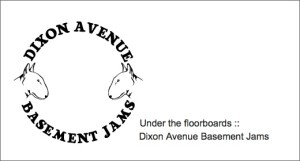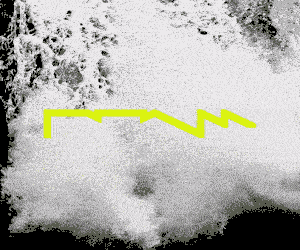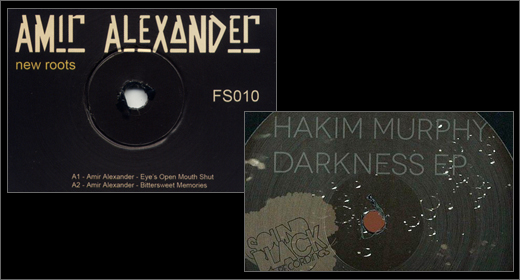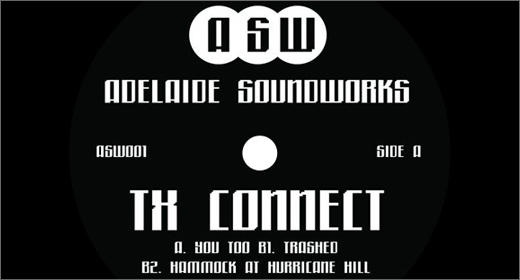Glasgow is an epicenter of electronic music in the UK, a town of techno scholars, electro experts and house aficionados with Rubadub being the Scottish University of these sounds. It is from this melting pot of knowledge that Dixon Avenue Basement Jams comes. An exciting imprint with the foundation, insight and substance to introduce some very interesting electronic music to awaiting ears.
 Grey. Chips. House. Battered Haggis and Chips. Tennents. Chips. Football. Techno. In no specific order these are my memories of almost three years living in Scotland’s largest city. Aye, a little reduced but ya get the gist. Football is the topical mainstay of the Glaswegian, techno isn’t far behind. This windswept town is Britain’s answer to Detroit, arguably Europe’s. This Glasgow love of Electronics has stemmed for a number of club nights, but from one store. Rubadub has been bringing synthesized sounds to the people of Scotland, and the UK, for twenty years. The store, and distributor, is synonymous with techno in Britain. Some of the brains behind this cornerstone of UK Dance Music have come together to create a new label: Dixon Avenue Basement Jams.
Grey. Chips. House. Battered Haggis and Chips. Tennents. Chips. Football. Techno. In no specific order these are my memories of almost three years living in Scotland’s largest city. Aye, a little reduced but ya get the gist. Football is the topical mainstay of the Glaswegian, techno isn’t far behind. This windswept town is Britain’s answer to Detroit, arguably Europe’s. This Glasgow love of Electronics has stemmed for a number of club nights, but from one store. Rubadub has been bringing synthesized sounds to the people of Scotland, and the UK, for twenty years. The store, and distributor, is synonymous with techno in Britain. Some of the brains behind this cornerstone of UK Dance Music have come together to create a new label: Dixon Avenue Basement Jams.
One of Dixon Avenue’s first discoveries was Marquis Hawkes, his Cabrini Green turning heads with its raw and uncompromising sounds. Hawkes returns to Glasgow’s Southside with Higher Force At Work. “Automatic” is a heavy handed piece of House, warbling and bulging basslines incised by sharp snares for a work of spaced Chicago. “Divine Intervention” sees the crueller side unleashed. Brash industrial beats are careened into claps and a caustic bass. Hawkes adds fuel to the fire, pouring acid scorn atop this brutal brew. But not all is backseat terror. A lilting melody, tamed by the fiercer elements, rises and falls to add a soothing touch of techno to the track. The title piece lands for the B-Side. Dirt, grim and fuzz are the components for a freaked out piece of Jak. The 707 beats are again ferocious, cocked and distorted with a dense melody forming around muffled notes. The anthem piece ends, “I Want You.” Samples are cut, sliced, segmented and rearranged in the tradition of late 80s house, Tyree Cooper say. Finale for the floor.
Frenchman Vernon opens his Dixon Avenue account with Chicken Dance. Tweaking bass introduces the slow stalk of “Low Control.” Lilting synth-lines echo with sinister undercurrents as acid strokes flex under 808 beats. “She Can Dance” croaks onto the floor, slow hats and parallel beats slide before long harmonies land. Claps are interlocked by low basslines until the half way mark when the troll is unleashed. Commodore 303 squalor hits but is tempered once again by gentle strings. Vernon has an individual take on house, one of reticent energy and concentrated intensity. “The Smoking Hat” lumbers into life, slowly building into a whimsical work of Wizard of Oz acid. Fudge Fingas is drafted in for the close, a remix of “Low Control.” The original is extended for a warming piece of techno, a melodic curtain fall.
I miss Glasgow from time to time, primarily the people but a close second is the music. Glasgow is an epicenter of electronic music in the UK, a town of techno scholars, electro experts and house aficionados with Rubadub being the Scottish University of these sounds. It is from this melting pot of knowledge that Dixon Avenue Basement Jams comes. An exciting imprint with the foundation, insight and substance to introduce some very interesting electronic music to awaiting ears.
















